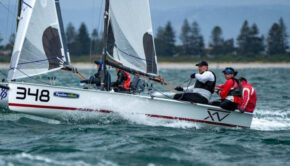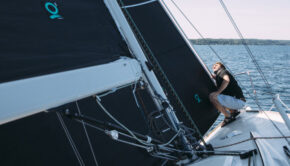How boating differs across the USA
Published on July 5th, 2018
With the immense size of the United States, the result is significant variance throughout the nation. What people like to do, how they treat their neighbor, their accent… there are just a lot of countries in the country.
After a nationwide survey of 1,994 boaters conducted June 2018, Progressive Insurance learned some interesting differences between boaters in different parts of the United States. Here are some of the examples on boat safety and mishaps on the water:
• Boaters in Minnesota (44%) and Wisconsin (45%) were more likely than their peers in other big boating states** to have struck a rock with their prop.
• Ohio boaters were the most likely to report having hit a dock (38%).
• Boaters in New York were more likely than their peers to experience “boat rage” (7%).
• But boaters in North Carolina reported the highest percentage (52%) of having expressed their frustration using — shall we say — colorful language.
• Nearly a quarter of Michigan and Texas boaters surveyed have left the drain plug out while boating.
• Minnesota and Michigan are home to the most long-time boaters (more than 10 years).
• Wisconsin boaters are the least likely to take a boat safety course (only 23%).
• 37% of North Carolinian boaters reported having been boarded by the coast guard for a safety check.
Some national-level insights:
• Across the country, 80 percent of boaters report that they consider themselves experienced boaters, but only 50 percent of those surveyed report having taken a boat safety course.
• 27% of surveyed boaters reported feeling very confident with basic boating terminology like bow, starboard, port side.
• 19 percent of survey respondents had been stranded in the water.
• Overall, the most common mishap boaters across the country report making was forgetting their sunscreen (45%).
**Defined as top 10 states, based on watercraft registrations.
The survey also found that the more time you spend on the water means the more you might encounter. Those who have been on the water for more than ten years are more likely to say they’ve been boarded by the Coast Guard for a safety check, hit a rock with a prop, caught a prized fish to only lose it at the last second, left the drain plug out, or become stranded on the water.









 We’ll keep your information safe.
We’ll keep your information safe.